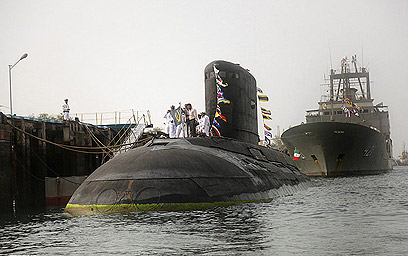The finances of the UK's final-salary pension schemes took a dramatic turn for the worse last month, figures show.
The Pension Protection Fund (PPF) said pension deficits reached a new high point in May, of £312bn.
The collective deficit of the 6,432 defined-benefit schemes in the private sector jumped by £95bn that month, it said.
This means that these schemes have only 77% of the assets they currently need to pay their pensioners.
In the past year the value of scheme assets has risen, from £989bn to £1,031bn.
But at the same time, the finances of many schemes have deteriorated sharply, because of a one-third rise in the estimated cost of paying for pensions, to £1,343bn.
The PPF explained that this was due to a further deterioration in the yield, or return, on government bonds.
"Over the month, 15-year gilt yields fell by 0.55 percentage points, which resulted in liabilities increasing by 7.6%," the PPF said.
"Over the year to May 2012, 15-year gilt yields were down by 1.73 percentage points."Volatile measure Continue reading the main story
The National Association of Pension Funds (NAPF) continued to blame the Bank of England's policy of quantitative easing for much of the recent ballooning of deficits.
The valuation of pension scheme liabilities - their obligation to pay current and future pensioners - involves an assumption that the returns they earn for their members will be in line with the return on government bonds, even if the assets are more widely invested in shares, property and cash.
The policy has been explicitly aimed at driving up the price of government bonds, which in turn depresses the returns they provide to investors, such as pension funds.
"Quantitative easing and international investors seeking a safe harbour from the euro storm have contributed to a sharp drop in gilt yields," said Joanne Segars, chief executive of the NAPF.
"Pension fund assets are actually higher than 12 months ago, but liabilities have risen disproportionately.
"This is a volatile monthly index and it is important to remember that pension funds work over a long timeframe that helps absorb the effects of market swings."
Only 929 of the 6,432 schemes monitored by the PPF are currently thought to be in surplus.
A year ago the collective deficit of all schemes was only £25bn.
"For many employers, low gilt yields will have cancelled out the impact of big cash contributions and strong investment returns over the past three years, and they will be back to square one or worse," said Mark Duke, a senior consultant at actuaries Towers Watson.
"In some cases, if employers cannot afford to divert a lot more cash into the fund, trustees could have to accept that it will take significantly longer to pay off the deficit."
BBC
